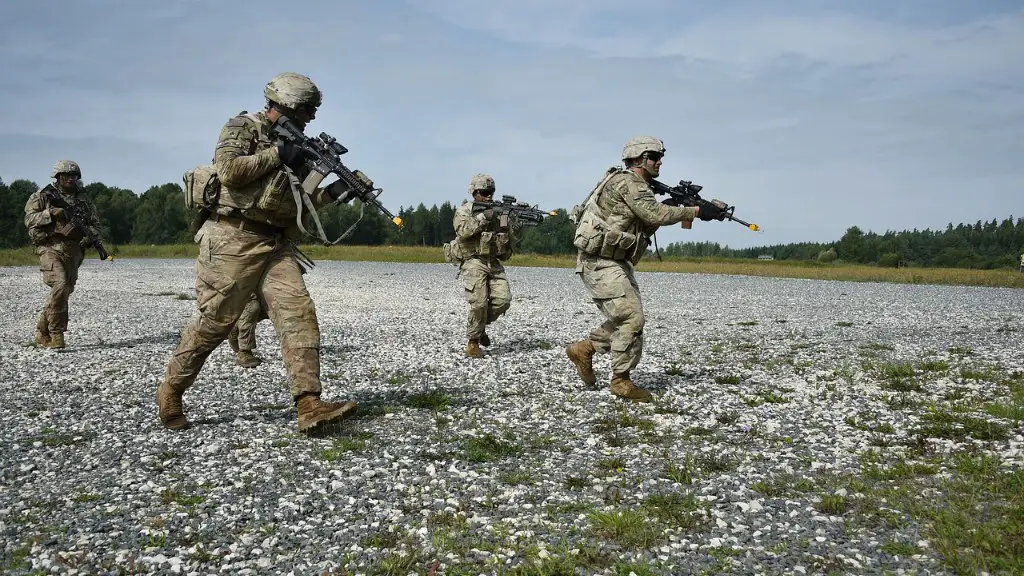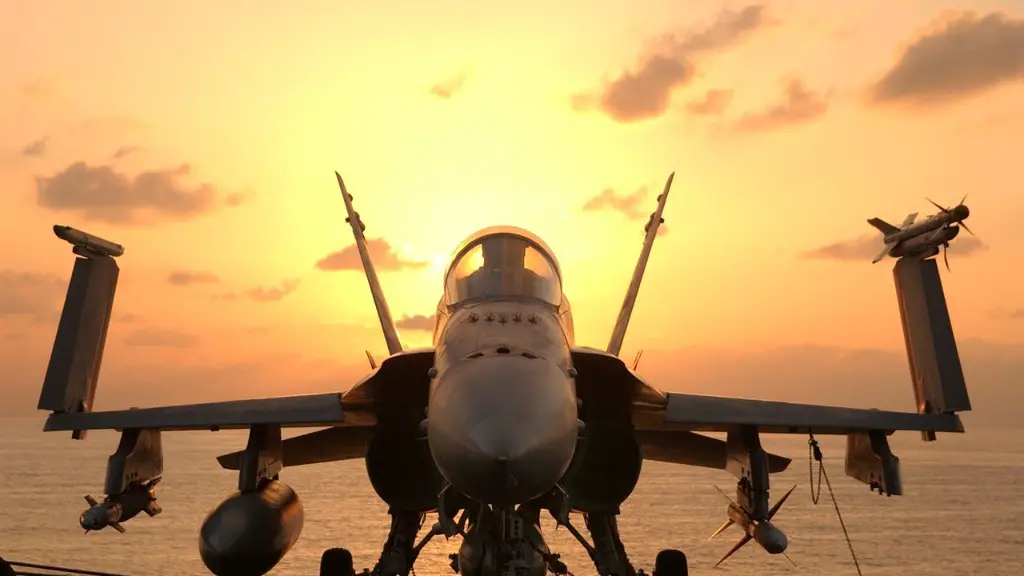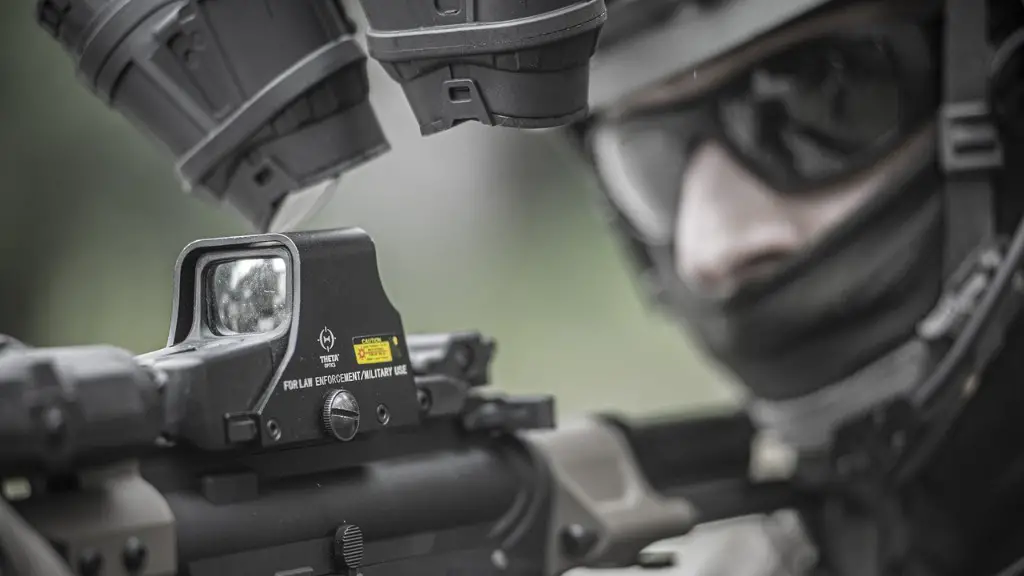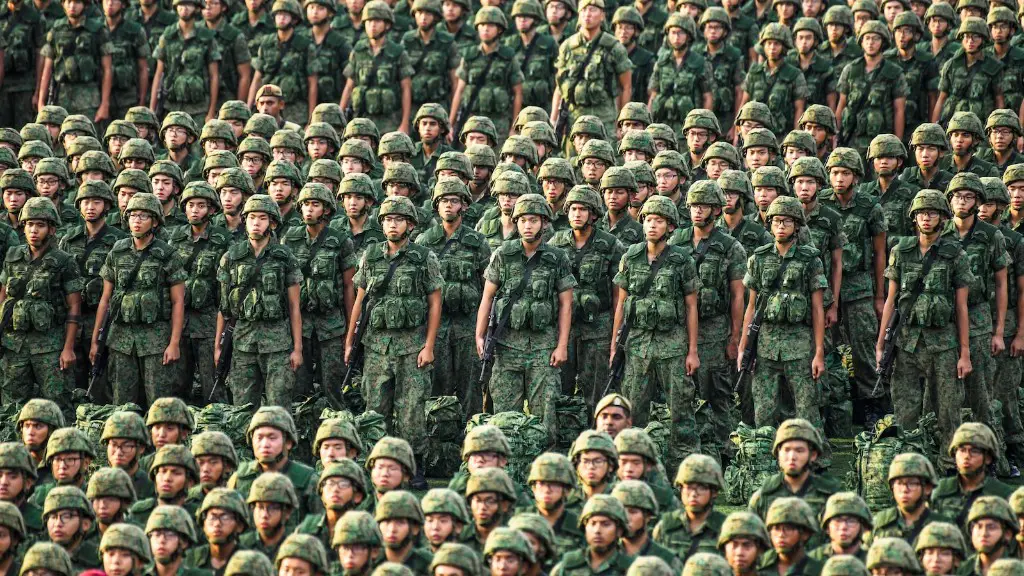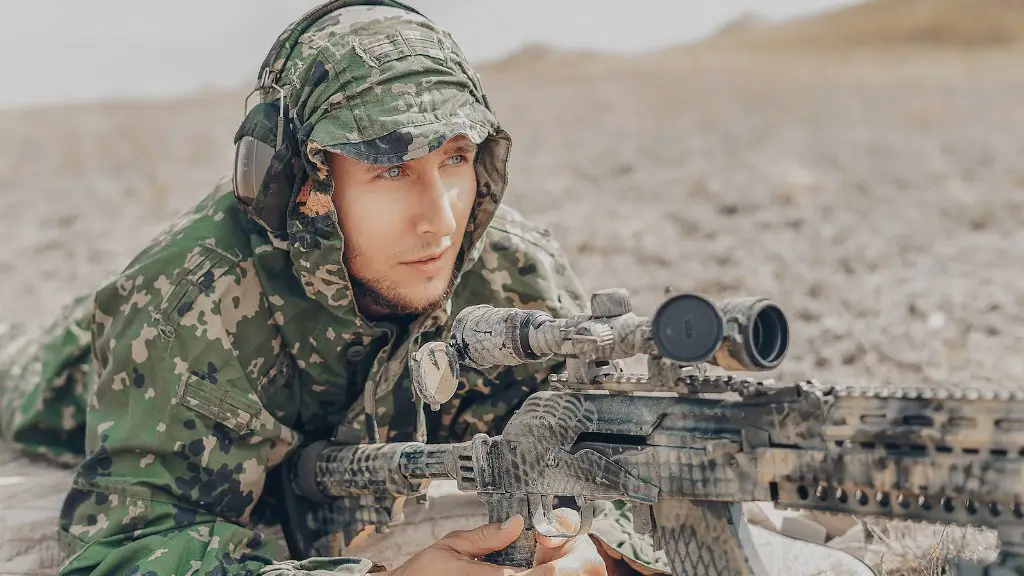China is the world’s most populous nation and, for generations, its most powerful. Chinese armies have shaped modern history, from the conquests of Qin Shi Huangdi and the grandeur of the Qing Dynasty to the modern day People’s Liberation Army. But with rapid military modernization, the greatest question remains: is the Chinese Army really powerful?
To understand the modern Chinese Army, we must first go back in history. China has had big armies and dynasties, such as the Han Dynasty, since ancient times. Throughout the years, the Chinese Army has adapted to the times and adapted to the changing needs and outfits of civilian society, providing a source of stability and an example of strength.
Today, the People’s Liberation Army is the world’s largest active military force. It currently contains 2.3 million active personnel, with an additional two million in reserve. China is also the world’s second-largest arms importer, buying $186.3 billion worth of weapons and military equipment, second only to the United States. On the flip side, its indigenous arms industry is one of the largest in the world; the creation of the Chinese-made Chengdu J-20 and J-31 fighters complimented a fleet of advanced Russia-made aircraft.
In terms of modern military technology, Chinese drones, satellites, and weapons systems have grown in sophistication and effectiveness over the years. Chinese efforts to build an aircraft carrier and its first homegrown stealth fighter both demonstrate an effort to modernize the navy, with plans for an air-launched anti-ship missile and more. The People’s Liberation Army Marine Corps, in particular, is a force to be reckoned with; it is uniquely adept at amphibious operations and has undergone extensive reforms to modernize its training and logistics.
On the international stage, while China has not historically been aggressive in its foreign policy, its presence has been felt in places like Taiwan and the South China Sea. Its involvement in the wars in Syria and Afghanistan hint at a desire to expand its global reach. Additionally, the Belt and Road Initiative commits the Chinese state to deep investments in Eurasia that could potentially entangle Beijing in regional affairs.
Overall, the Chinese military is a force to be reckoned with in the modern age. Its growing sophistication and technological capabilities certainly stand out, as does its ability to project power abroad. But a true measure of its strength will come from its success in deterring potential adversaries, as well as using its strength to promote peace and stability in East Asia.
China’s Digital Revolution
The development of digital technology has been a priority for China, and the People’s Liberation Army has been at the forefront. As well as being equipped with the world’s most powerful computer, China is now well on its way to becoming the first major power to include artificial intelligence in its military doctrines. UAVs and robotic systems are increasingly being employed in the military, and the PLA has placed an emphasis on cyberwarfare, utilizing automated systems and machine learning.
Furthermore, the Chinese military has leveraged its technological advances to build a formidable network of surveillance, one which even its own citizens cannot escape. The powers of facial recognition, personal data collection, and predictive analytics are all utilized by the Chinese state, allowing for unprecedented control and monitoring of information.
In terms of its digital operations, the PLA is more than just a match for its adversaries. It has already demonstrated the ability to hijack satellite communications, launch ransomware attacks, and collect sensitive data – all of which can be used to launch future attacks.
What’s more, China’s internet-based research programs and “Skynet” initiative seeks to provide open access to 3D intelligence by scanning the entire surface of the planet. With these new capabilities, the Chinese military may be able to track, analyze, and respond to threats in real time and at an unprecedented scale.
China’s Military Alliances
When it comes to great powers, alliances are key. China has been building strategic partnerships with other countries for centuries, from the British East India Company to the present day. The PLA has strong ties to Pakistan, and has also been strengthening ties with Russia, a relationship that has become more official with the signing of a military cooperation agreement in 2020.
But China’s most important relationship is with the United States. Despite a tense political situation, China is by far the largest trade partner of the United States and its military has a growing presence in the Pacific, having been involved in joint exercises with the US in the South China Sea.
China has also made efforts to cement its presence in other regions. Its strategic partnership with ASEAN, in particular, has been growing, with money and military presence poured into the region. With countries like Myanmar and Cambodia increasingly relying on the Chinese military for peacekeeping, the PLA’s reach is quickly extending across the continent.
An Evaluation of Chinese Military Power
China has made great strides in modernizing its military and expanding its geopolitical reach. Its strong economy, advanced technology, and strategic partnerships give it a firm standing in the world, but there is much more to consider.
Most notably, the size of China’s military and the extent to which it relies on conscription remain uncertain. Though it has the world’s largest military, its actual effectiveness is largely untested, as it has not fought a conventional war since its civil war in the 1950s.
Likewise, the actual number of reserve personnel remains an issue of contention. Estimates of the number of reserves have varied widely, but it is generally believed to be in the millions- making it much larger than the militaries of the United States and Russia.
In terms of its power projection, China’s navy must still catch up to its rivals. Although it has made efforts to bolster its extensive aircraft carrier fleet, it still lags behind the other major naval powers.
The Chinese military is also encumbered by its lack of military experience, as well as its lack of an expeditionary capability needed to project power beyond its own borders.
China’s Arms Race
The increasing strategic and military competition between China and the United States has created a new arms race, as both countries attempt to outspend and outmatch each other.
The US has revealed plans to invest up to $27 billion dollars in its Asia-Pacific operations, spending heavily on the defense of allies like Japan, South Korea, and Australia. Meanwhile, China is investing billions of dollars in its missile defense systems, tactical weapons, navy, and more.
Another area of competition is in the realms of technology, where the arms race is between the US and China most potent. The US recently unveiled new ground-based nuclear missiles, and China responded in kind by announcing the deployment of its Dong Feng-41 missiles.
Both countries recognize the danger of the present arms race, with US Secretary of Defense Lloyd Austin cautioning that an arms race with China could “destabilize the region and the world”. However, neither side is likely to back down any time soon.
The Role of China’s Military
Ultimately, the Chinese military is both a reflection of its country’s political and economic might, and a formidable force in its own right. Its reliance on conscription, large size, and technological advances have made it one of the world’s truly powerful armies.
At the same time, its ambitious military modernization program has brought with it an increased risk of instability and conflict. Its involvement in regional affairs and large-scale investment into military technology suggests a desire to flex its muscles, but also points to a need for strategic restraint and diplomacy.
The future of the People’s Liberation Army, and of China’s place in the world, will depend to a large extent on how it addresses these issues. The PLA is certainly powerful, but it will ultimately be its actions and not its size that define its legacy.

